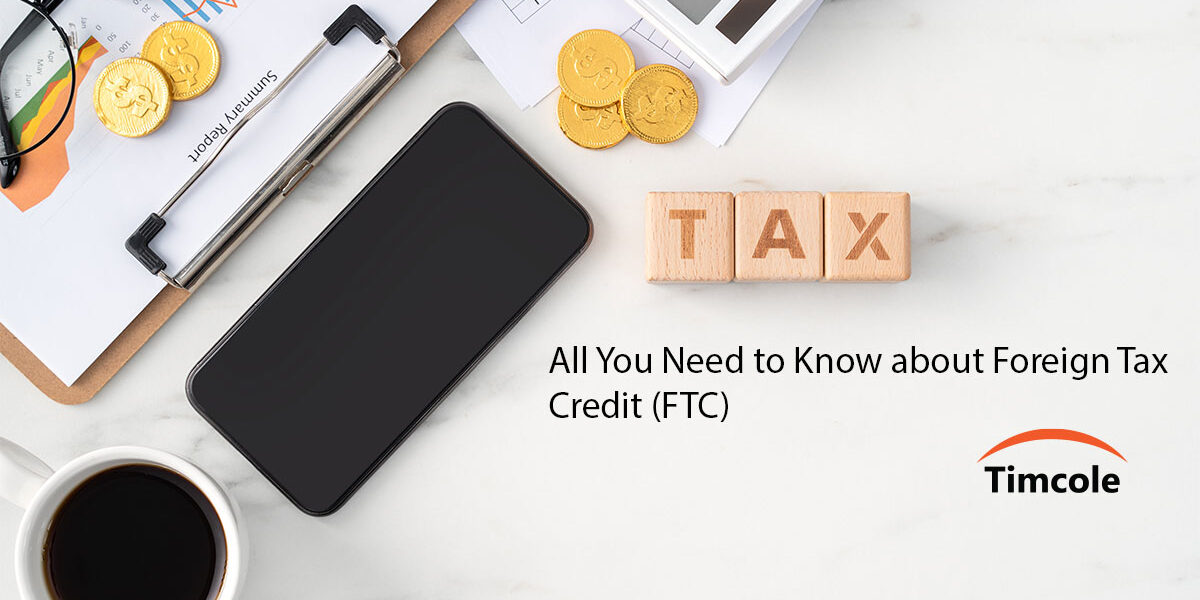Singapore residents who pay tax can be subjected to tax on foreign income that is received in the country unless the foreign income meets all the requirements to qualify for tax exemption.
If that income is also subjected to tax in the foreign tax jurisdiction in which it is derived, a Foreign Tax Credit (FTC) can be claimed against a tax that is payable on the same income. What this does is mitigate double taxation on the same income.
🔖 Read an overview of taxation in Singapore.
Conditions for Claiming Foreign Tax Credit (FTC)
The following is a list of all the conditions that a company must satisfy to claim FTC in Singapore:
- The company must be a tax resident of Singapore during the relevant basis year
- The tax is either payable or has already been paid on the same income in the foreign jurisdiction
- Income can be taxed in Singapore
Companies that are in a Loss Position
FTC cannot be given to any companies that are in a loss position. Note that FTC comes in 2 different forms – Double Tax Relief (DTR) and Unilateral Tax Credit (UTC).
📚 Learn more about Singapore corporate tax and its general income tax rate.
Double Tax Relief (DTR)
DTR is typically provided under the Avoidance of Double Taxation Agreement and its main purpose is to help reduce double taxation in Singapore. It allows the residents of Singapore to claim a credit for the amount of tax paid in the foreign jurisdiction against a tax that is payable on the same income.
This relief can only be granted if a foreign tax was paid in accordance with the DTR. DTR is typically lower than both the foreign tax that has already been paid and the Singapore tax that would have been payable on the same income.
If control and management of a company’s business operations are exercised in Singapore, then that company is considered to be a tax resident of the country.
Unilateral Tax Credit (UTC)
Since 2009, UTC has been granted on every source of foreign income that the residents of Singapore have received from jurisdictions that do not have any Double Tax Relief with the country itself.
Regardless of the type of FTC you would like to claim, the amount of FTC will be lower than the amount of both the foreign tax that you have paid and the Singapore tax that is payable on the income. These are typically done on a “source-by-source and country-by-country” basis.
“Source-By-Source and Country-By-Country”’ Basis
According to this basis of the Foreign Tax Income computation process, an excess of foreign tax that has been paid over the amount of Singapore tax that is payable on any one type of foreign income from a country cannot be used to reduce the amount of Singapore tax that is payable on any other type of foreign income from that same country.
For instance, an excess of foreign tax that has been paid over the amount of Singapore tax that is payable on a dividend from China cannot be used to reduce the amount of Singapore tax that is payable on any other type of foreign income from China.
Also, an excess of foreign tax that has been paid over the amount of Singapore tax that is payable on any one type of foreign income from a foreign country will not be available for offset against the amount of Singapore tax that is payable on that same type of income from a different foreign country.
For instance, an excess of foreign tax that has been paid over the amount of Singapore tax that is payable on a dividend from China cannot be used for the purpose of reducing the amount of the Singapore tax that is payable on a dividend from Thailand. The excessive foreign tax that has been paid will be disregarded for tax purposes.
On top of all of these, an excess of foreign tax that has been paid over the amount of Singapore tax that is payable on any one type of foreign income from a foreign country will not be used for the purpose of reducing the amount of Singapore tax that is payable on a different type of foreign income from a different foreign jurisdiction.
For instance, an excess of foreign tax that has been paid over the amount of Singapore tax that is payable on a dividend from China will not be used for the purpose of reducing the amount of Singapore tax that is payable on interest from Thailand.
Foreign Tax Credit (FTC) Pooling System
Since 2012, any Singapore company has the right to get elected for the FTC pooling system. Note that FTC on various types of income can be pooled together without having to be computed on the above-mentioned basis. The following conditions need to be met:
- You must have already paid the income tax on the income in the foreign tax jurisdiction from which the income was derived
- The headline tax rate of the foreign jurisdiction needs to be at least 15% at the time of the income delivery in Singapore
- There must be a Singapore tax that is payable on your income
- You are entitled to file a claim for FTC
If your foreign income does not qualify for the FTC pooling system, you will continue to be subjected to the ‘’source-by-source and country-by-country’’ basis.
Tax Exemption of Foreign-Sourced Income
There are 3 different categories of foreign income in Singapore:
- Foreign branch profits
- Foreign-sourced service income
- Foreign-sourced dividend
According to Section 13(8) of the Income Tax Act, tax exemption can only be granted if the following conditions are met:
- The highest corporate tax rate of the foreign jurisdiction needs to be at least 15% at the time of the income delivery in Singapore
- The foreign income needs to have already been subjected to tax in the foreign jurisdiction from which it was received (keep in mind that the rate at which the foreign income was taxed does not have to be the same as the highest corporate rate)
- The Comptroller is aware that the person in question will benefit from the tax exemption
Benefits of having a Holding Company in Singapore
As a holding company, you have the right to file a claim for FTC on several different types of foreign income, including both royalty and interest. You may also choose to go for FTC pooling if you want to enhance the effects of these tax benefits.
🏢 Setting up a company in Singapore? Read our guide on tax saving for setup companies in Singapore.

If you would like to learn more about what Timcole can do for you, feel free to contact us.
Our team of professionals can assist you in opening a holding company in Singapore or provide consultation on corporate tax or tax exemption schemes that your business is eligible for.








